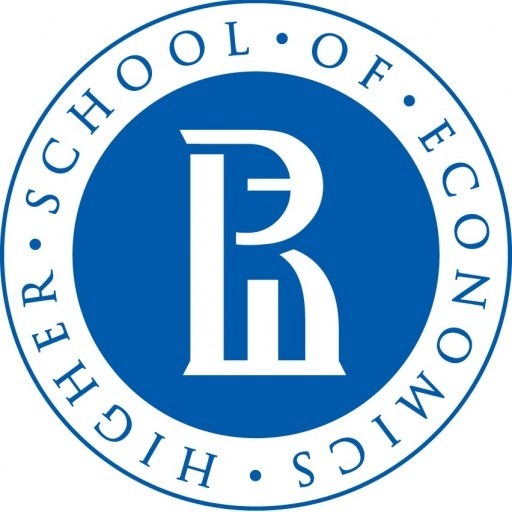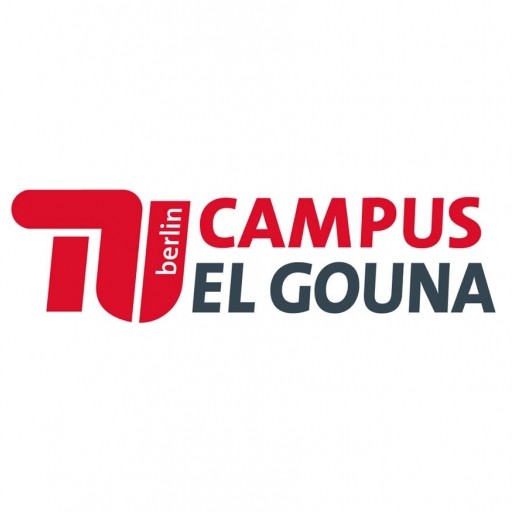Photos of university / #hse_university
Management — Governance of Science, Technology and Innovation is a specialized master's program designed to prepare professionals capable of effectively managing and governing scientific, technological, and innovative activities within various organizational and policy contexts. The program aims to develop students’ understanding of the complex mechanisms that drive innovation ecosystems, facilitate the translation of scientific research into practical applications, and promote sustainable development through informed governance. Emphasizing interdisciplinary approaches, the curriculum combines theories and practices from management, science policy, innovation studies, economics, and law, providing a comprehensive educational experience that fosters analytical thinking and strategic decision-making.
Students will explore the institutional frameworks that support science and technology development at different levels—from national policy and international cooperation to corporate R&D management. The program covers key topics such as innovation strategies, intellectual property rights, research funding mechanisms, regulatory environments, and the impact of digital transformation on science governance. Special attention is given to contemporary challenges in managing innovation systems, including ethical considerations, societal impacts, and the role of public-private partnerships.
Designed for future leaders in academia, government agencies, research organizations, and private companies, the program offers both theoretical insights and practical skills through case studies, project work, and internships. Coursework is complemented by seminars, guest lectures from industry experts, and collaborative projects that simulate real-world governance scenarios. The program also encourages research activities, enabling students to contribute to academic and policy debates on science and innovation governance.
Graduates of the program will be equipped with the competencies necessary for designing and implementing effective policies and management strategies that stimulate innovation, enhance scientific research productivity, and promote technological advancement. They will be prepared for careers in science policy agencies, innovation ministries, research institutes, and multinational corporations, as well as for further academic pursuits. Overall, the program aims to foster a new generation of professionals capable of shaping governance frameworks in science, technology, and innovation sectors, ensuring their sustainable growth and societal benefit.
The Master's program in Governance of Science, Technology, and Innovation at the National Research University Higher School of Economics is designed to equip students with comprehensive knowledge and practical skills to analyze and manage the complex processes underlying scientific and technological development in contemporary society. This program provides an interdisciplinary approach, combining insights from management, policy analysis, innovation studies, and science and technology studies, to prepare graduates for leadership roles in innovation ecosystems, research organizations, governmental agencies, and private sector companies involved in technological advancement.
Throughout the course of study, students will engage with theoretical frameworks and empirical case studies related to the governance of science and innovation systems across different national and international contexts. They will examine the strategic management of research and development institutions, innovation policies, intellectual property rights, funding mechanisms, and the social and ethical implications of new technologies. The program emphasizes the development of critical thinking and analytical skills necessary to evaluate policy options, design effective governance models, and foster sustainable innovation environments.
Students will also gain hands-on experience through project work, internships, and collaboration with industry and government partners, which aims to bridge academic knowledge with real-world application. Particular attention is given to the challenges faced by science and innovation governance in the digital age, including issues of open science, digital transformation, data governance, and the role of public and private actors in fostering innovation.
The curriculum covers core courses such as Innovation Policy and Management, Governance of Scientific Institutions, Intellectual Property and Innovation Economics, Ethics and Social Implications of Technology, and Comparative Innovation Systems. Elective modules allow students to explore specialized topics such as cleantech innovation, biomedical innovation governance, or digital platforms and ecosystems. The program concludes with a thesis that demonstrates the student's ability to conduct independent research and contribute to the development of effective science and innovation governance strategies.
Graduates of this program will be well-prepared to pursue careers in academia, policy-making, consultancy, or managerial positions in organizations focused on the promotion and regulation of science and technology. They will have the capacity to critically analyze the dynamics of innovation systems, formulate policies to enhance technological progress, and contribute to the creation of innovative and sustainable solutions to global challenges.
Program requirements for the Master's Degree in Management — Governance of Science, Technology and Innovation typically include a combination of academic prerequisites, language proficiency, and other criteria aimed at ensuring candidates are well-prepared for advanced study in this specialized field. Applicants are generally expected to hold a completed Bachelor's degree or equivalent in fields related to management, economics, political science, science and technology studies, or related disciplines from an accredited university. Some programs may prioritize candidates with relevant work experience or research activity in the domains of science policy, innovation management, or technological development.
Proficiency in English is often required, demonstrated through standardized tests such as TOEFL or IELTS, to ensure students can engage with international academic literature and participate in collaborative research projects. Additionally, students may need to submit a statement of purpose, detailing their interest in the program, professional goals, and how their background aligns with the curriculum. Letters of recommendation from academic or professional references are typically requested to assess the applicant's potential and motivation.
Some programs require applicants to pass an entrance examination or interview to evaluate their analytical thinking, motivation, and specific knowledge pertinent to science, technology, and innovation governance. A comprehensive CV or resume highlighting academic achievements, work experience, and research activity may also be necessary. The program emphasizes interdisciplinary knowledge, critical thinking, and practical skills; therefore, applicants might be asked to demonstrate familiarity with research methodologies, policy analysis, or innovation management practices.
In summary, candidates should ensure their educational background aligns with the program's focus, demonstrate proficiency in English, submit relevant documentation such as academic transcripts, CV, statement of purpose, and recommendations, and, where required, succeed in additional assessments like interviews or entrance exams. The goal is to select applicants who are capable of contributing to and benefiting from the complex interdisciplinary approach necessary to effectively govern science, technology, and innovation in various societal contexts.
The financing of the "Management — Governance of Science, Technology and Innovation" master's program at the National Research University Higher School of Economics is primarily supported through a combination of government allocations, university budget allocations, and external sources such as research grants and partnerships. The program benefits from state funding aimed at developing expertise in the management of scientific and technological innovation, which helps to subsidize tuition costs for both domestic and international students who meet certain criteria. Additionally, the university allocates internal funding to support research activities, faculty development, and program-related events, ensuring a high-quality educational environment. Some students may also have access to scholarships based on academic excellence, financial need, or specific competitive selection processes, which are financed through university funds, government programs, or collaborations with industry partners.
International students enrolling in the program often have opportunities to apply for financial aid or sponsorships offered by the university or external entities, including international organizations and research institutes. The university actively seeks to foster partnerships with governmental agencies, non-profit organizations, and private sector companies to expand funding sources for the program. Such collaborations may include joint research projects, funding competitions, or sponsored internships, which contribute to the overall financial sustainability of the program and enhance the learning experience for students.
Furthermore, the program emphasizes the importance of research grants and project-based funding, acquired through competitive calls at both national and international levels. Faculty members and students are encouraged to participate in these research initiatives, which not only enrich the academic experience but also bring additional financial resources into the program. The program's budget also supports international exchanges, conferences, and publication activities, which are crucial for maintaining academic standards and enhancing the global reputation of the program.
Overall, the financing structure of the "Management — Governance of Science, Technology and Innovation" master's program at HSE is diverse and strategically designed to ensure financial stability and continuous development. The combination of public funding, competitive grants, institutional allocations, and external sponsorships allows the program to maintain high standards of education and research while providing substantive support to its students.
The Master’s program in Governance of Science, Technology, and Innovation at the National Research University Higher School of Economics is designed to provide students with a comprehensive understanding of the intricate mechanisms that underpin innovation processes and scientific advancement within a societal and governmental context. The program emphasizes interdisciplinary learning, integrating principles from management, policy analysis, economics, and sociology to prepare graduates for roles in policy-making, research management, and consulting in the fields of science and technology governance. Students gain insights into the strategic management of research institutions, the formulation and evaluation of innovation policies, and the evaluation of technological innovations' societal impacts. The curriculum covers core topics such as innovation systems, intellectual property rights, technology transfer, and the role of government in stimulating R&D activities. It also addresses contemporary challenges like digital transformation, ethical considerations in technological development, and global competitiveness. The program aims to develop analytical skills, strategic thinking, and practical competence through case studies, seminars, and internships with leading research centers and governmental agencies. Graduates are equipped to contribute to policymaking processes, support research institutions, and foster innovation ecosystems at local, national, and international levels. The program’s faculty comprises experienced researchers and practitioners from academia, government, and industry, ensuring that students are exposed to current trends and real-world applications. The program typically spans two years, including coursework, research projects, and a master’s thesis. It is suitable for recent graduates in social sciences, management, political science, or related fields, as well as for professionals seeking to deepen their expertise in the governance of science and technology. The program also encourages international collaboration and offers various opportunities for students to participate in exchange programs, conferences, and joint research initiatives. Overall, the Master’s in Governance of Science, Technology, and Innovation aims to foster a new generation of experts capable of shaping effective policies and managing complex innovation processes, ultimately contributing to sustainable economic growth and technological advancement.










